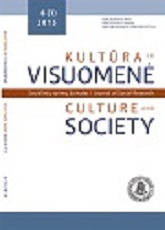Naujos partnerystės po skyrybų teorinių hipotezių ir veiksnių analizė
The Analysis of Theoretical Hypotheses and Factors Influencing the Reconstitutions of Partnership after Divorce
Author(s): Ernesta PlatūkytėPublished by: Vytauto Didžiojo Universitetas
Keywords: šeimos atkūrimas; partnerystė po skyrybų; kohabitacija; skyrybos. reconstitution of family; partnership after divorce; cohabitation; divorce.
Summary/Abstract: Analizuojant ekonominius, socialinius ir kultūrinius veiksnius, kurie riboja / veikia žmonių galimybes patenkinti naujos partnerystės poreikį, straipsnyje yra apibendrinamos mokslinėje literatūroje minimos partnerystės atkūrimo teorinės hipotezės (poreikių, patrauklumo, galimybių), aptariami bei įvertinami pagrindiniai partnerystę po skyrybų skatinantys ir (ar) jai trukdantys veiksniai, tokie kaip amžius, lytis, išsilavinimas ir pan. Be to, įvertinamos ir vertybės, kurios lemia individų apsisprendimą megzti ar ne pakartotinius santykius. Atlikta analizė rodo kad partnerystę po skyrybų aiškinančios teorinės hipotezės integruoja keletą veiksnių, nes tai yra kompleksinis reiškinys. Vertybės ir veiksniai, tokie kaip amžius, išsilavinimas, vaikų turėjimas gali turėti neigiamos ir (ar) teigiamos įtakos partnerystės atkūrimo galimybėms tiek moterims, tiek vyrams. Tačiau išsiskyrusios moterys susiduria su daugiau ribojančių veiksnių ir turi mažiau galimybių sukurti naują partnerystę, nei išsiskyrę vyrai. The article analyzes the economic, social and cultural factors that influence a person’s capacity to address his / her need to create a new partnership. It overviews the theoretical hypotheses on the reconstitution of partnership (needs, attractiveness, and possibilities) advanced in academic literature, and assesses the principal factors – including age, sex, education, etc. – that either facilitate or interfere with the reconstitution of partnership after divorce. In addition to assessing the concrete factors, the values that influence one’s decision (not) to engage in new relations are also taken into account. The conducted analysis suggests that there are several factors subsumed in the theoretical hypotheses on the reconstitution of partnership, which presents a complex process. Values and factors such as age, education and children can have either a positive or a negative effect on the prospects of reconstitution of partnership among both women and men. However, women who have undergone divorce face more constraints and have fewer opportunities for reconstitution of partnership than divorced men have. Research indicates that men’s possibilities, needs and attractiveness for reconstitution of partnership are less limited. As a result, the factors that can interfere with the reconstitution of partnership for women are more positive than negative for men. The economic, social and/or cultural circumstances that affect an individual after divorce define his or her perception of the situation, and the reconstitution of partnership can become a strategy aimed at combating the negative effects of divorce. A thorough analysis of the process of reconstitution of partnership as well as economic, cultural and social factors that play a role in it, requires an in-depth demographic investigation of the cohort aspects of the reconstitution of partnership. This would shed light on selectiveness in the reconstitution of partnership. A careful qualitative analys
Journal: Kultūra ir visuomenė: socialinių tyrimų žurnalas
- Issue Year: VI/2015
- Issue No: 1
- Page Range: 45-53
- Page Count: 8

